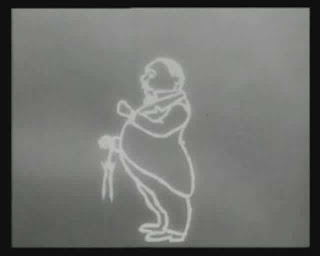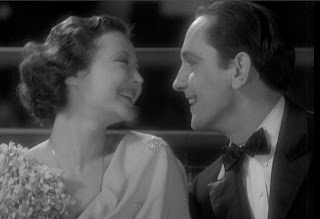Title: The Unchanging Sea
Release Date: 5 May 1910Directed by: DW Griffith
Starring: Arthur V. Johnson, Linda Arvidson, Mary Pickford
IMDB: http://www.imdb.com/title/tt0001431/
My Rating: (10/10) ★★★★★★★★★★
As I take my sojourn through cinematic history, I get very excited when I stumble upon a gem like The Unchanging Sea. I actually watched it for the first time about a week ago, and it's taken me this long to process why it touched me so deeply. First it's very simple...a very simple story of a woman who waits years and years for her husband to return after he leaves to earn a living on a fishing expedition. Unbeknownst to the woman, the husband has had an accident and has lost his memory. Meanwhile the couple's daughter grows up and finds a fisherman of her own, and the wife grows more and more weary at her husband's continued absence. But luckily, there's a happy ending indeed...
I think the reason it made such an impact on me is the fact that, for the first time I think, I felt effective passage of time utilized in cinema. You watch the wife age, you watch the daughter grow up, you watch the husband age. All of this plays out for the sake of the narrative, and that's something I don't think I've seen up to this point. Plus I have a great big soft spot for stories of people who sacrifice themselves to the torture of everlasting unrequited love. What a life I say.
This film was inspired by a poem by Charles Kingsley called The Three Fishers. Here's an excerpt from that poem: For men must work, and women must weep / And there's little to earn, and many to keep / Though the harbour bar be moaning.
------
other DW Griffith films I have watched
Those Awful Hats
The Sealed Room - This film is about a king who gets angry that his lover is having an affair with the court musician and so, when he finds her in a room with her conquest, he summons his servants and they seal the room up with bricks. This kind of reminds me of what that one chick did to Rafe on Days of our Lives last week
Corner in Wheat
His Trust: The Faithful Devotion and Self Sacrifice of an Old Negro Servant - This is the first time I have encountered black face on my quest. I'm sure there are a lot more instances to come though.




















